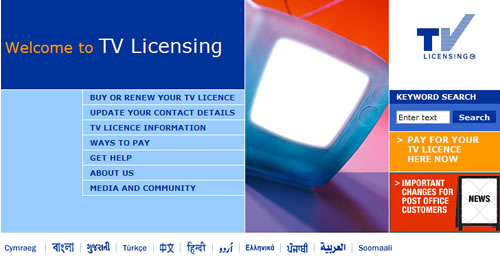 Some MP’s are trying to create brouhaha (fuss) about a spoof video put out by labour MP Sion Simon mocking the first video of Conservative party leader, David Cameron on his Webcameraon site.
Some MP’s are trying to create brouhaha (fuss) about a spoof video put out by labour MP Sion Simon mocking the first video of Conservative party leader, David Cameron on his Webcameraon site.
If you’ve not seen Cameron’s first piece, which was put out in advance of the Tory party conference, take a trundle through – it’s only just over a minute long.
When we saw it, we found it pretty contrived, with “Dave” just about to do the “washing up” – clutching his Ecover washing-up liquid (look how green I am), without rolling his sleeves up!
Sion Simon’s video repost parodies Cameron’s “hey, I’m just like you” approach and can be seen below can’t been seen on YouTube anymore as someone has pulled the video. To see it now, you’ll have to watch it via the BBC.
The criticism of Simon is being lead by Peter Luff and given Luff’s comments, it appears that he’s not too secure in his position, “When you go over the top like this, you bring all of us in politics into disrepute.” If you’ve watched the film I think you’ll agree that the video is hardly over the top, just gently mocking.
Criticism of the video isn’t just restricted to the opposition. Labour MP Stephen Pound said he thought Mr Cameron’s wife Samantha would be “hurt and insulted” by remarks made by Simon, referring to his comments suggesting that Cameron would be fine with people sleeping with his wife.
It’s not just MPs that are creating spoof videos. Someone calling himself WebCameraOn has created a number of videos pocking fun as well.
Cameron is playing the “am I bovvered” card. 2:49 minutes into this piece, Cameron mentions that there had been a number of spoofs of his piece, calling them “The greatest form of flattery, imitation.” Bizarrely Cameron also says, “Hope that you people are enjoying the Web site,” “You People”?
Cameron – or at least someone in his team – has clearly seen that he now has the ability to bypass the media and the filter that they apply to his comments.
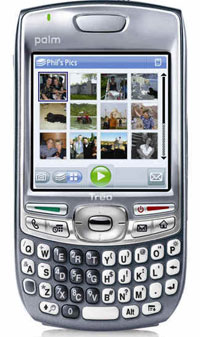 Palm has introduced a new range of quad-band Palm Treo 680 smartphones, running the tried and trusted Palm OS.
Palm has introduced a new range of quad-band Palm Treo 680 smartphones, running the tried and trusted Palm OS. The Treo comes with a large and bright 320×320 screen and the well regarded full QWERTY keyboard, with a raft of multimedia functions including an integrated digital camera, Bluetooth 1.2 , MP3 player, video recorder and player.
The Treo comes with a large and bright 320×320 screen and the well regarded full QWERTY keyboard, with a raft of multimedia functions including an integrated digital camera, Bluetooth 1.2 , MP3 player, video recorder and player. Along with the usual bundled applications for e-mail, Web browsing, messaging, multimedia, calendar and contacts, there’s a special version of Google Map for the Treo.
Along with the usual bundled applications for e-mail, Web browsing, messaging, multimedia, calendar and contacts, there’s a special version of Google Map for the Treo.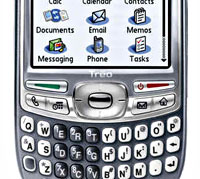 Palm has also announced that it will be partnering with several media companies, including Yahoo, Google and blogging firm Six Apart, to make their products available on the new device – these will join the enormous back catalogue of commercial and free software that’s already available for the OS.
Palm has also announced that it will be partnering with several media companies, including Yahoo, Google and blogging firm Six Apart, to make their products available on the new device – these will join the enormous back catalogue of commercial and free software that’s already available for the OS. Orb MyCasting has been grabbed by Nokia to be bundled in with the Nokia N80 Internet Edition, in the US only.
Orb MyCasting has been grabbed by Nokia to be bundled in with the Nokia N80 Internet Edition, in the US only. docs.google.com is the new destination for Google’s Web-based Writely word processor and their companion spreadsheet.
docs.google.com is the new destination for Google’s Web-based Writely word processor and their companion spreadsheet. Sony have released the latest of their Walkmans – with the added bonus of having noise cancellation built in. It’s the first for a portable music player.
Sony have released the latest of their Walkmans – with the added bonus of having noise cancellation built in. It’s the first for a portable music player. The almighty ruck between Blu-ray and HD-DVD could have found a bridge for the consumer.
The almighty ruck between Blu-ray and HD-DVD could have found a bridge for the consumer. In an ideal world, waiting near the top of the new OFCOM boss Ed Richards’ in-tray, there should be a folder marked ‘Sky Monopoly’ and on it a brightly coloured post-it with the words anti competitive clearly inscribed.
In an ideal world, waiting near the top of the new OFCOM boss Ed Richards’ in-tray, there should be a folder marked ‘Sky Monopoly’ and on it a brightly coloured post-it with the words anti competitive clearly inscribed. The area where Sky has decided not to use DVB is for its Conditional Access encryption.
The area where Sky has decided not to use DVB is for its Conditional Access encryption.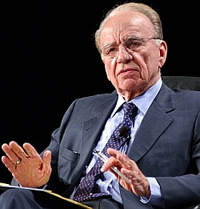 If that TV service then wants to charge the subscribers to their service they have to use that special version of Videoguard CA.
If that TV service then wants to charge the subscribers to their service they have to use that special version of Videoguard CA.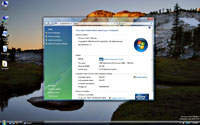 It’s been a long, long wait, but it looks like the release of Microsoft’s new operating system, of Windows Vista is finally set to happen soon.
It’s been a long, long wait, but it looks like the release of Microsoft’s new operating system, of Windows Vista is finally set to happen soon.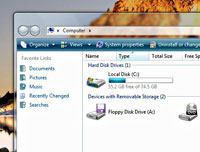 With Microsoft now saying that just has to add the finishing touches to the overall quality and performance of the eagerly awaited operating system, the company looks set to meet it targets.
With Microsoft now saying that just has to add the finishing touches to the overall quality and performance of the eagerly awaited operating system, the company looks set to meet it targets.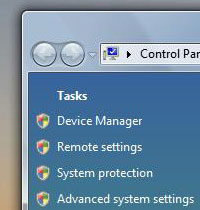 “We had been sceptical of the launch schedule after Beta 2 shipped with problems in May, but the team seems to be making great progress in addressing issues of performance, reliability and compatibility,” he wrote in a research note.
“We had been sceptical of the launch schedule after Beta 2 shipped with problems in May, but the team seems to be making great progress in addressing issues of performance, reliability and compatibility,” he wrote in a research note. BBC Director-General Mark Thompson is back on again trying to justify to the British government why the BBC should be allowed to increase their licence fee above the Retail Price Index (
BBC Director-General Mark Thompson is back on again trying to justify to the British government why the BBC should be allowed to increase their licence fee above the Retail Price Index (